Jeanne von Vietinghoff, his mother
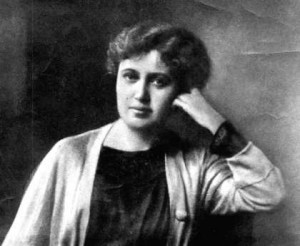 Jeanne Céline Emma von Vietinghoff born Bricou
Jeanne Céline Emma von Vietinghoff born BricouBorn: December 31, 1875 in Schaerbeek,
today district of Brussels, Belgium
Died: June 15, 1926 in Pully near Lausanne, Switzerland
Foreword
She was an outstanding personality who became the idol in her social environment and particularly for the writer Marguerite Yourcenar. Her inner development departed from conventional Protestantism to a free spirituality and a humanistic view of mankind as it is mirrored in her own literary works. She was strictly committed to her own demands but simultaneously was under pressure from external expectations which she triggered in others.
As the spouse of a first latent and later a clearly homophile musician, who was somewhat clueless in daily life affairs, she had a rather difficult life. In addition, she brought up two children, managed house concerts and salons, and organized many travels as well as four moves between three countries. All these responsibilities exhausted her too early, thus she died at the age of 50.
Content
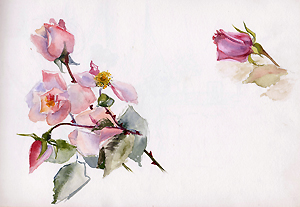 1) Biography
1) Biography2) Vietinghoff and Yourcenar
• Jeanne – Fernande – Marguerite
• Seven poems for a dead woman
• In Memory of Diotima
• The New Eurydice
• Anna, soror ...
• Memories of Hadrian
• The Abyss
• Quoi? L'Eternité
• Egon von Vietinghoff and Marguerite Yourcenar
• Conrad von Vietinghoff and Marguerite Yourcenar
• Jeanne de Vietinghoff – Michel de Crayencour – Alexis von Vietinghoff
3) Obituary of Jeanne de Vietinghoff
4) Bibliography
• Biographies of Marguerite Yourcenar
• The books of Jeanne de Vietinghoff
• The book of Christine M. McGinley
• Other publications
5) More remarks
Biography
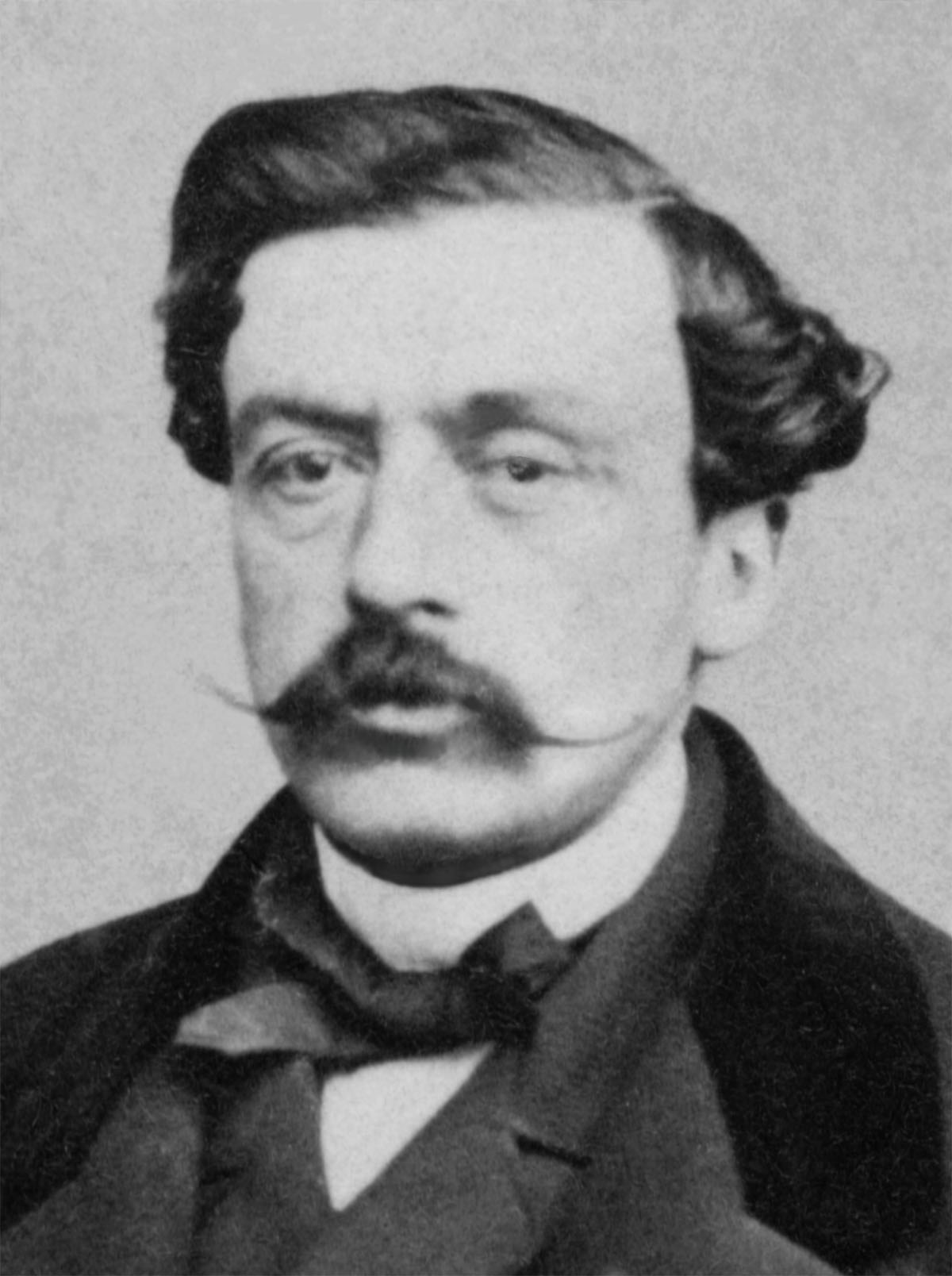
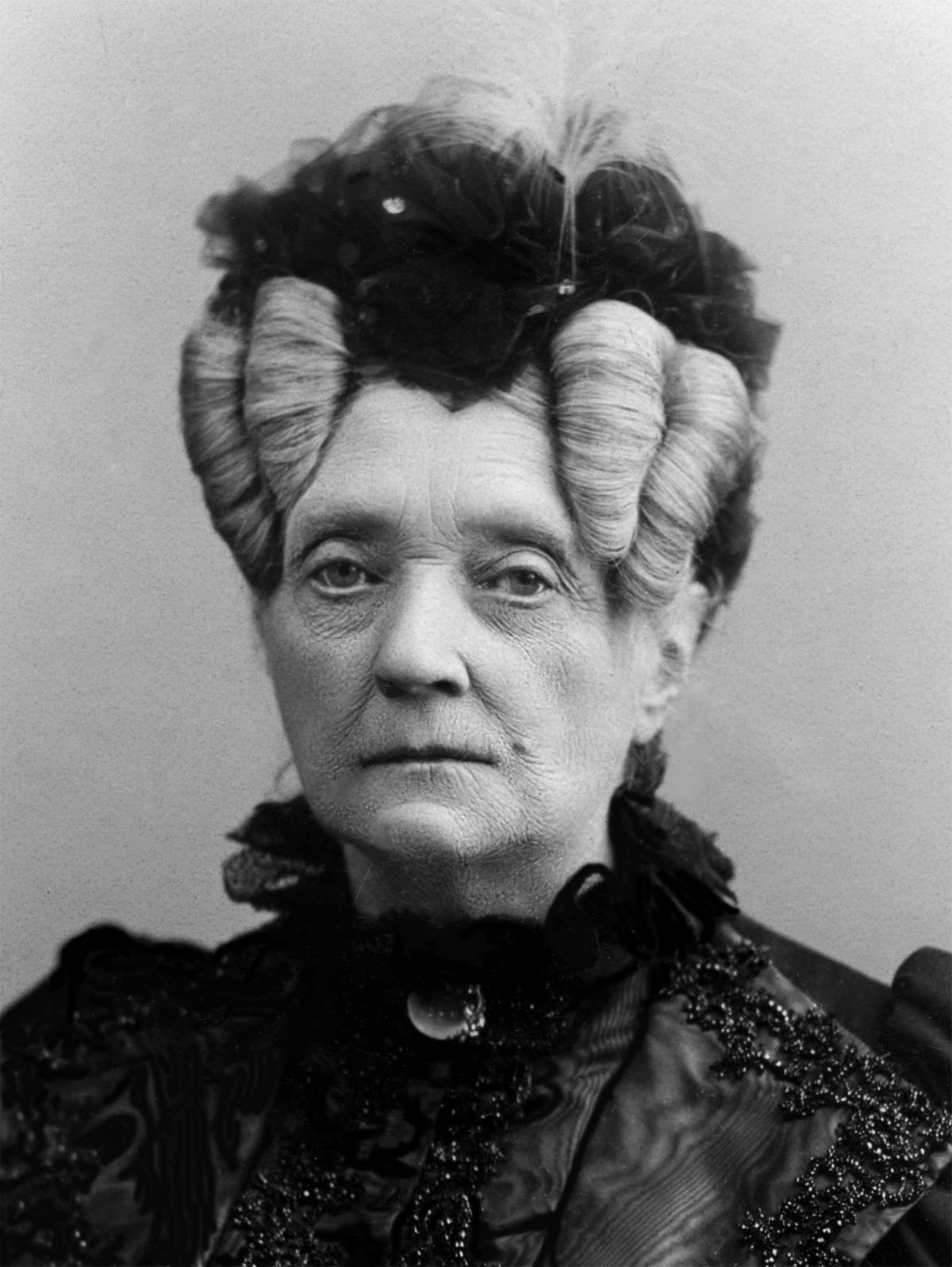 Jeanne
Jeannevon Vietinghoff was the daughter of the Belgian wholesaler*) Alexis Pierre Joseph Bricou (1825-1877) and his third wife Emma Antoinette Isaure Storm de Grave (1841-1933) from Dutch patrician family.
*) other source says architect .
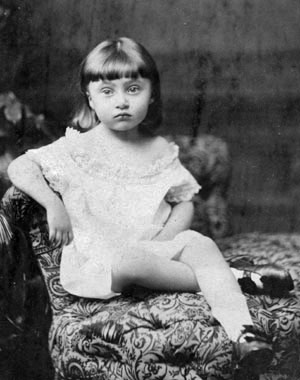 Jeanne was only 18 months old when her father died.
Jeanne was only 18 months old when her father died. She grew up as the only child at her mother's villa in Brussels (at rue du Progrès 121) where there are now office complexes near the Northern railway station.
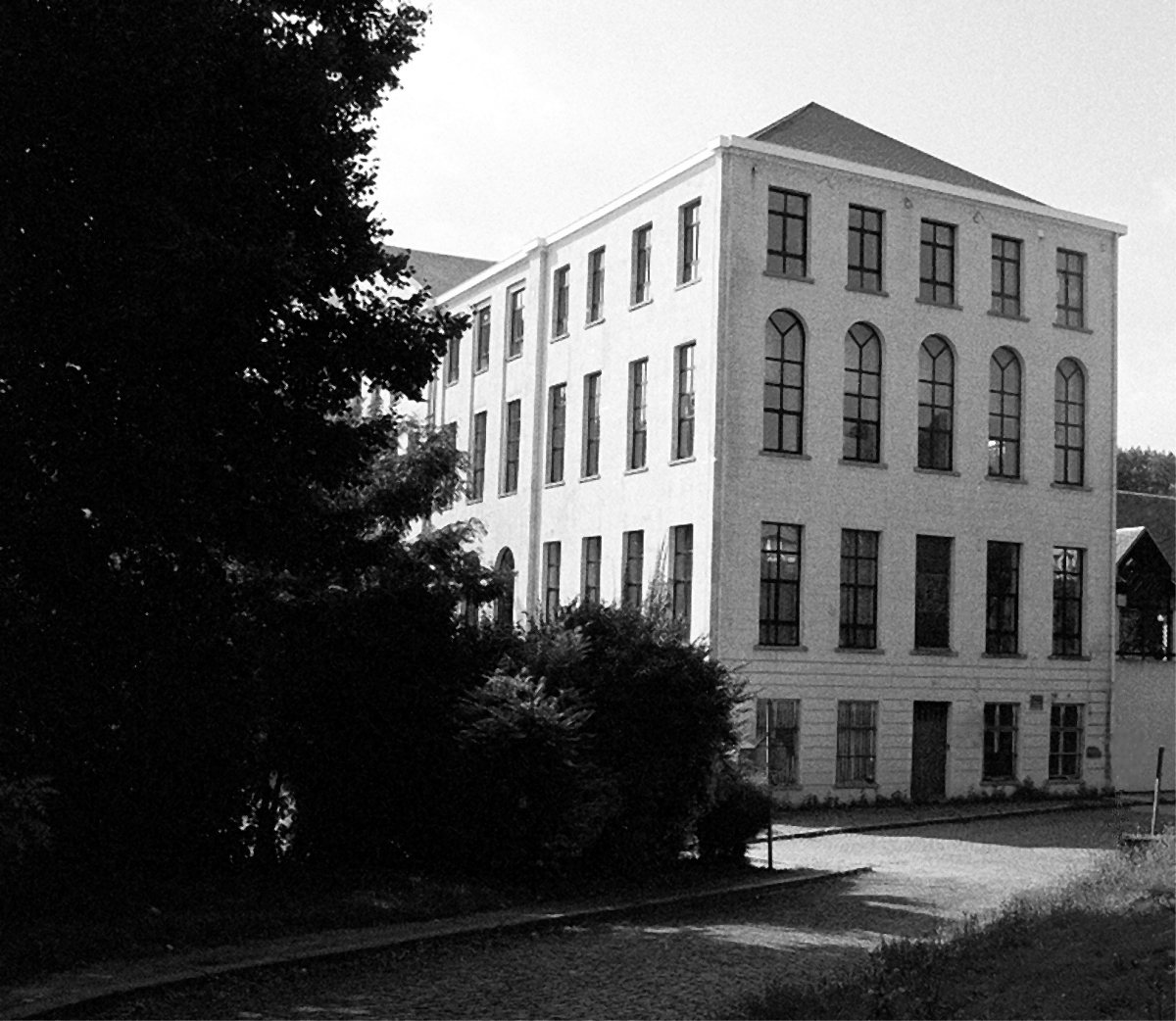
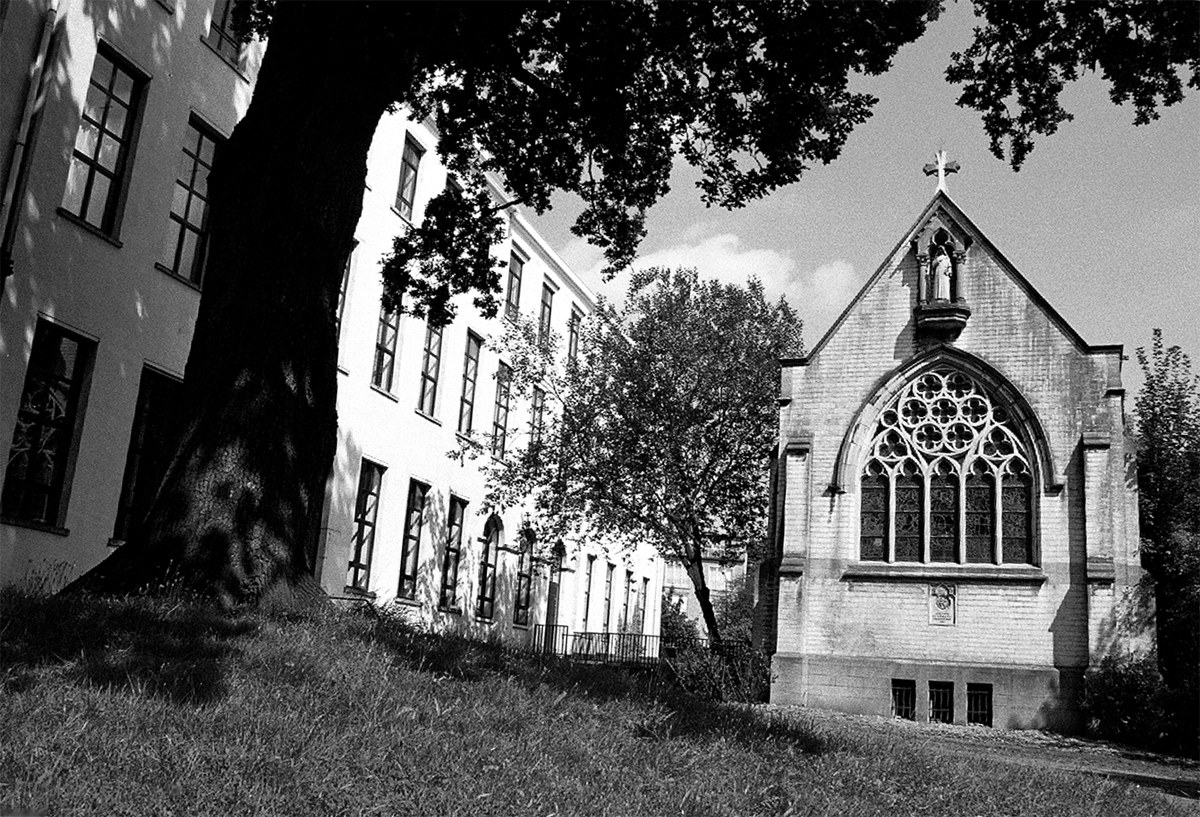 For several years she attended the convent school Sacré-Coeur at Jette on the outskirts of Brussels. As a protestant she was allowed only to be a day student.
For several years she attended the convent school Sacré-Coeur at Jette on the outskirts of Brussels. As a protestant she was allowed only to be a day student. Her best friend there is Fernande Cartier de Marchienne, the mother of the future writer Marguerite Yourcenar.
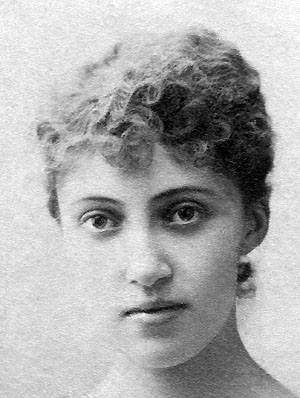
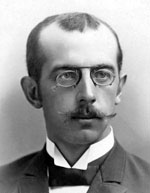 The remarkable sensitive, somewhat chic beauty from a prosperous home was eager to learn.
The remarkable sensitive, somewhat chic beauty from a prosperous home was eager to learn. Early on, she joined together with the Swedish count Sten de Lewenhaupt. The long engagement of chastity stressed him so much, that his mental condition deteriorated until he must be hospitalized in a psychiatric clinic. During these years, young Jeanne prayed ardently for his spiritual salvation. She experienced the conversion from pain into intense introversion with a deep religiosity.
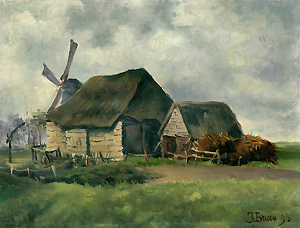
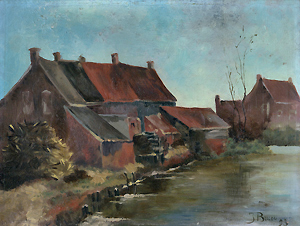
She painted two small landscapes and made several pencil sketches before her marriage with the painter's father. Egon kept them for filial love's sake. Nevertheless, they are quite excellent for an exercise done by a 17 year old girl.
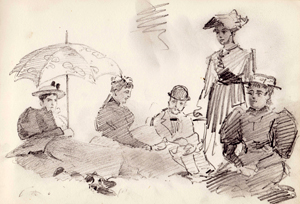
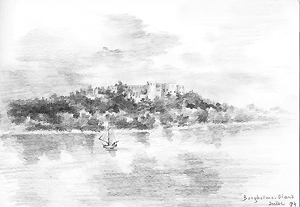 Later, Jeanne
Later, Jeannedevotes herself to thoughts and writing.
She seems to have passed onto her son Egon some of her talents.
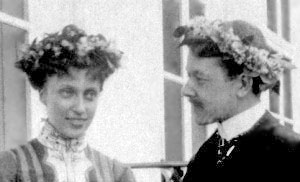
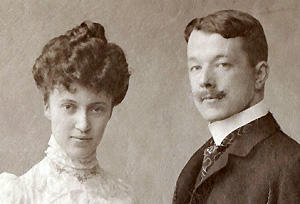 After the engagement with the Swede ended tragically, she met the five years older German-Baltic baron Conrad von Vietinghoff, the father of the painter, at a lecture in spiritual circles in Dresden. They shared many views and similar experiences with congruency in modesty, compassion and sensibility.
After the engagement with the Swede ended tragically, she met the five years older German-Baltic baron Conrad von Vietinghoff, the father of the painter, at a lecture in spiritual circles in Dresden. They shared many views and similar experiences with congruency in modesty, compassion and sensibility.On the occasion of their engagement, Jeanne and Conrad visited his father Arnold Julius in the Baltic region and were married in The Hague, Netherlands, on 1902, April 17.
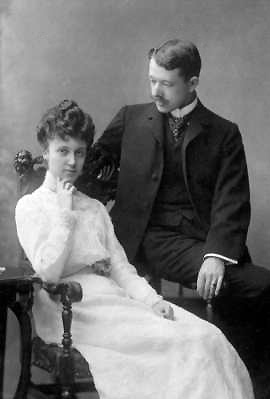 A deep reciprocal appreciation, as well as their mutual love of art, ethics and religion, united her with Conrad, the painter's father.
A deep reciprocal appreciation, as well as their mutual love of art, ethics and religion, united her with Conrad, the painter's father. 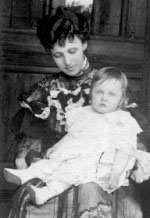
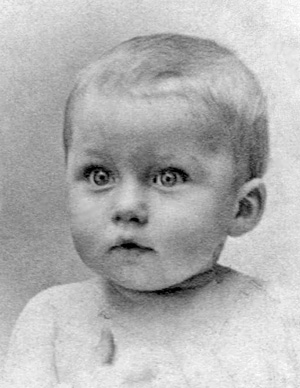
In this transpersonal union there was love based on spiritual and on emotional congeniality, and it brought forth two sons:
Egon (1903), the painter, and Alexis (1904).
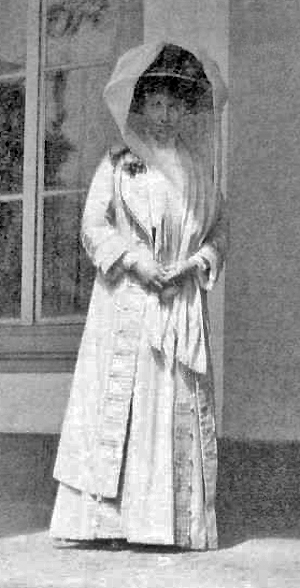
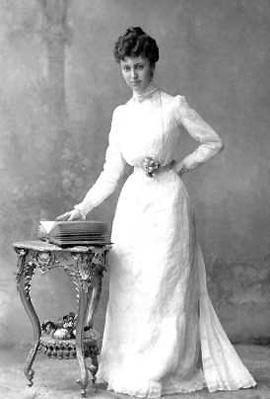 Wherever she went, people were impressed by her outstanding personality.
Wherever she went, people were impressed by her outstanding personality. She was the personified mix of beauty, dignity, intelligence, integrity, originality, spiritual depth, and human warmth.
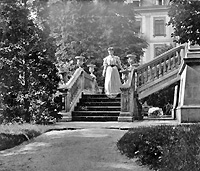 For 25 years, she generously donated their socially active homes in Paris, Wiesbaden, Geneva and Zurich which served as meeting places for intellectual encouragement and exchange of ideas on art.
For 25 years, she generously donated their socially active homes in Paris, Wiesbaden, Geneva and Zurich which served as meeting places for intellectual encouragement and exchange of ideas on art. Jeanne maintained scholarly relationships also with the literature Nobel prize laureates Romain Rolland and Maurice Maeterlinck, and with the author Guy de Pourtalès, while Conrad maintained connections to the cellist Pablo Casals and the conductor Carl Schuricht.
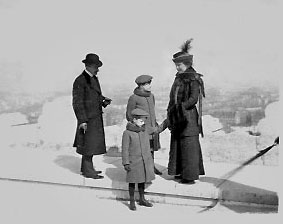 Besides the many receptions, the house was the location for occasional local concerts by Conrad as pianist.
Besides the many receptions, the house was the location for occasional local concerts by Conrad as pianist.While Jeanne is busy visiting her mother in Holland and with family journeys with the children and sometimes their governess to France, Italy, Germany, Livonia and to Switzerland, she finds time to write five books. They are psychological and philosophical contemplations on life, the nature of the soul, chances offered by human crisis, the importance of spiritual development, and the divine dimension of being.
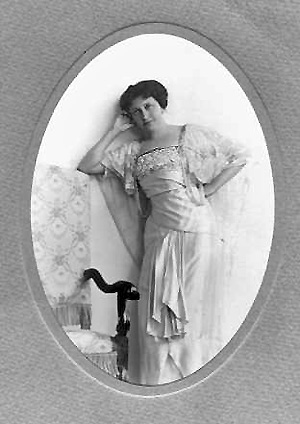
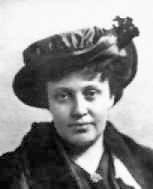 Consistently, she developed the point of view of a woman of unshakable inner strength with formulated values worth living for.
Consistently, she developed the point of view of a woman of unshakable inner strength with formulated values worth living for.In the course of writing, she expanded her original denomination-bound view and to encompass the most essential human virtues; driven by the horrors of the First World War and by the personal experiences of her marriage.
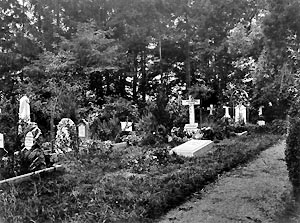 Did this intensive life and her responsibility for her highly sensitive husband and her children kill her prematurely? She died in her 50th year, of cancer of the liver.
Did this intensive life and her responsibility for her highly sensitive husband and her children kill her prematurely? She died in her 50th year, of cancer of the liver.Her gravestone at the cemetery of Jouxtens near Lausanne, over the lake of Geneva, is removed. On the memorial slab there was engraved Son nom était Amour et Bonté ("Her name was Love and Goodness)".
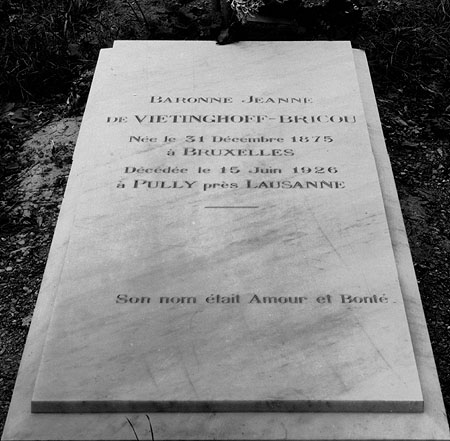 The biographer of Marguerite Yourcenar, M. Goslar, reproaches Egon for not caring his critically ill mother despite his strong affectionate closeness to her. What could have been the reasons for this phenomenon? A real enthusiast of Paris, Egon was absorbed in the artist life in the town; he was immersed in his experiments, the studies of the Old Masters, his own still life painting and portrait commissions. His parents knew that and especially his mother would be the last person who would burden him with her illness; she was not the one making a lot of fuss about herself or even would have "yammered". Certainly, she did not want to distract him or to hinder his youthful vigor and artistic departure with worries over her. In addition, it was a kind of family tradition to spare the beloved ones bad news about the own physical condition.
The biographer of Marguerite Yourcenar, M. Goslar, reproaches Egon for not caring his critically ill mother despite his strong affectionate closeness to her. What could have been the reasons for this phenomenon? A real enthusiast of Paris, Egon was absorbed in the artist life in the town; he was immersed in his experiments, the studies of the Old Masters, his own still life painting and portrait commissions. His parents knew that and especially his mother would be the last person who would burden him with her illness; she was not the one making a lot of fuss about herself or even would have "yammered". Certainly, she did not want to distract him or to hinder his youthful vigor and artistic departure with worries over her. In addition, it was a kind of family tradition to spare the beloved ones bad news about the own physical condition.Hélène Naville wrote in the obituary: She felt tired and was ailing for a long time when the first symptoms of the illness manifested in the course of the fall 1925 and finally took away her full vitality. After some months of illness without any improvement Jeanne von Vietinghoff demanded from her doctors the truth about her state of health. Due to her persistence, they confessed that she could only be cured by a miracle. She accepted the verdict heroically. The period from fall 1925 until June 1926 is about eight months and it appears that after some months refers to 3 or 4 months. How much of the information actually reached Conrad and Egon, two people whom Jeanne surely wanted to spare?
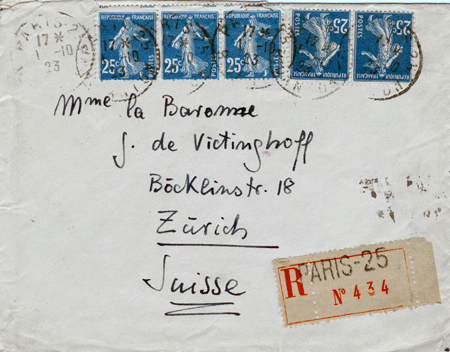 Thus, the possible brief hints about Jeanne's deteriorating health which reached Egon were most probably restrained or vaguely misleading.
Thus, the possible brief hints about Jeanne's deteriorating health which reached Egon were most probably restrained or vaguely misleading. Therefore, the news of her dead was a shock for him; if he had been informed about the process of her illness and her serious final condition, he would not have been shocked to such an extent.
The son, just 22/23 years old, couldn't really help her anyway and could imagine her with a good medical support or in a "health cure" and relaxation program to recover at Lake Geneva.
Should he leave everything behind him due to scanty and vague information?
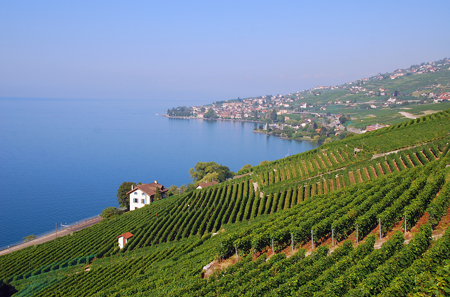 Cancer of the liver was almost incurable at that time and progresses quickly so that Egon recognized the finality too late. Could he have been aware from the distance?
Cancer of the liver was almost incurable at that time and progresses quickly so that Egon recognized the finality too late. Could he have been aware from the distance? It happened in the summer time and Egon may have vacationed outside of Paris and been difficult to contact. However, it can not be precisely determined anymore. It seems as he was faced with a fait accompli and was completely unprepared for this stroke of fate.
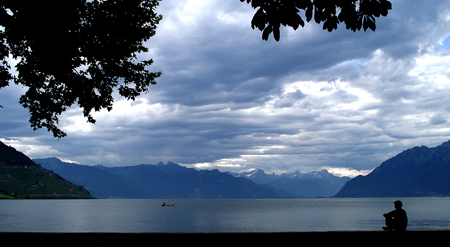 In addition, M. Goslar was suspicious about Egon von Vietinghoff’s lack of memory during her interview because after 60 years, at the age of 83, he could not readily remember the date of his mother’s death and in what small village she was buried in. M. Goslar cannot grasp how he could have adored his perfect mother, held her in high esteem, but not remember this date and place. He was an artist, focused on underlying spiritual truths but not concerned with worldly matters such as birthdates and grave locations. He was Jeanne's son with a similar mindset to her as described in Yourcenar's In Memory of Diotima (see below).
In addition, M. Goslar was suspicious about Egon von Vietinghoff’s lack of memory during her interview because after 60 years, at the age of 83, he could not readily remember the date of his mother’s death and in what small village she was buried in. M. Goslar cannot grasp how he could have adored his perfect mother, held her in high esteem, but not remember this date and place. He was an artist, focused on underlying spiritual truths but not concerned with worldly matters such as birthdates and grave locations. He was Jeanne's son with a similar mindset to her as described in Yourcenar's In Memory of Diotima (see below).M. Goslar reported without any reference that Egon invited his father to travel to Vienna
after Jeanne's death; then for some months to Paris in order to distract him from his immense
grief (p.83). This was never mentioned within the family and therefore most probably belongs in the
realm of Yourcenar's literary conjecture.